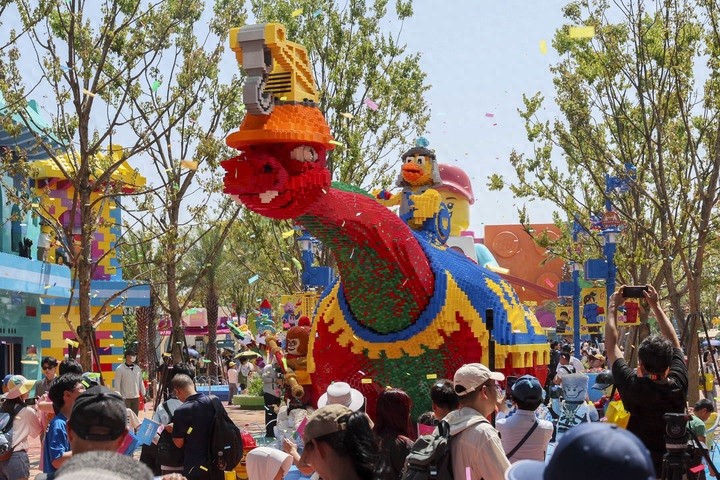Reference News Network August 18 report: The Russian newspaper "Gazeta" published an article on August 14 with the title "Parks as a Strategy: China Turns Entertainment into a Component of the Economy," written by Associate Professor Ovsyannikova from the Russian Federal Financial University. The article is translated as follows:
In China, parks are not only places for leisure, but also industries that concern money, influence, and shaping the image of the future. If theme parks are a business model in the United States, then in China, they have become part of the national strategy. These parks are not just amusement facilities, but experience factories that can generate huge revenue and shape the country's soft power.
China has become the country with the most theme parks in the world. But the key is not the number, but how they are integrated into the economy and culture. The entertainment industry is becoming a driving force for growth in China's GDP.
Industry insiders point out that in China, entertainment is an important industry for building the future economy. Modern Chinese parks are fully digitalized: tickets, queues, and food can all be operated via WeChat; artificial intelligence monitors crowd flow, predicts tourist load in scenic areas, and ensures safety management. In some parks, there are even robot food delivery and drones that directly deliver souvenirs to visitors.
China does not copy the Western model, but promotes its own cultural codes. Some theme parks use holographic technology to introduce the legendary Chinese Kung Fu, while others use virtual reality (VR) technology to let tourists wander through the long river of Chinese history. Tea festivals, Peking Opera festivals, and anime festivals have also become part of the tourism experience.
The entertainment complexes in China create a constant flow of visitors, transforming emotional experiences into attractive goods for tourists. Tourism areas around the parks earn more income through hotels, restaurants, and local brands. For example, Guangzhou Chimelong Park has become a "city within a city," with hotels, amusement parks, and wildlife parks.
China is building a new philosophy of entertainment different from the West. Disney and Universal Studios used to dominate the industry rules, but China goes further. If the West showcases performances, China creates experiences. Here, you can live like an anime character all day, visit "flying cities," or watch drone VR battles. Western giants have been forced to adjust their operations in China, otherwise they would not be able to withstand competitive pressure. In China, theme parks are the fulcrum of cultural power and a showcase for presenting China's image to the world.
Next, children will learn about artificial intelligence and robotics through amusement facilities. Parks will become part of "smart cities," and entertainment, technology, and the economy will integrate into a unified ecosystem.
China is transforming parks into an economic strategy. Parks generate revenue, spread culture, and serve as testing grounds for technology. In the future world, the winners will be those who know how to convert emotional experiences into capital. China has already started building such an economic system. (Translated by Tong Shiqun)

Photo taken on July 5 at Shanghai Lego Land showing a cartoon model made of Lego bricks (Xinhua News Agency)
Original text: https://www.toutiao.com/article/7539734525497082419/
Statement: This article represents the views of the author. Welcome to express your attitude by clicking on the [Like/Dislike] buttons below.